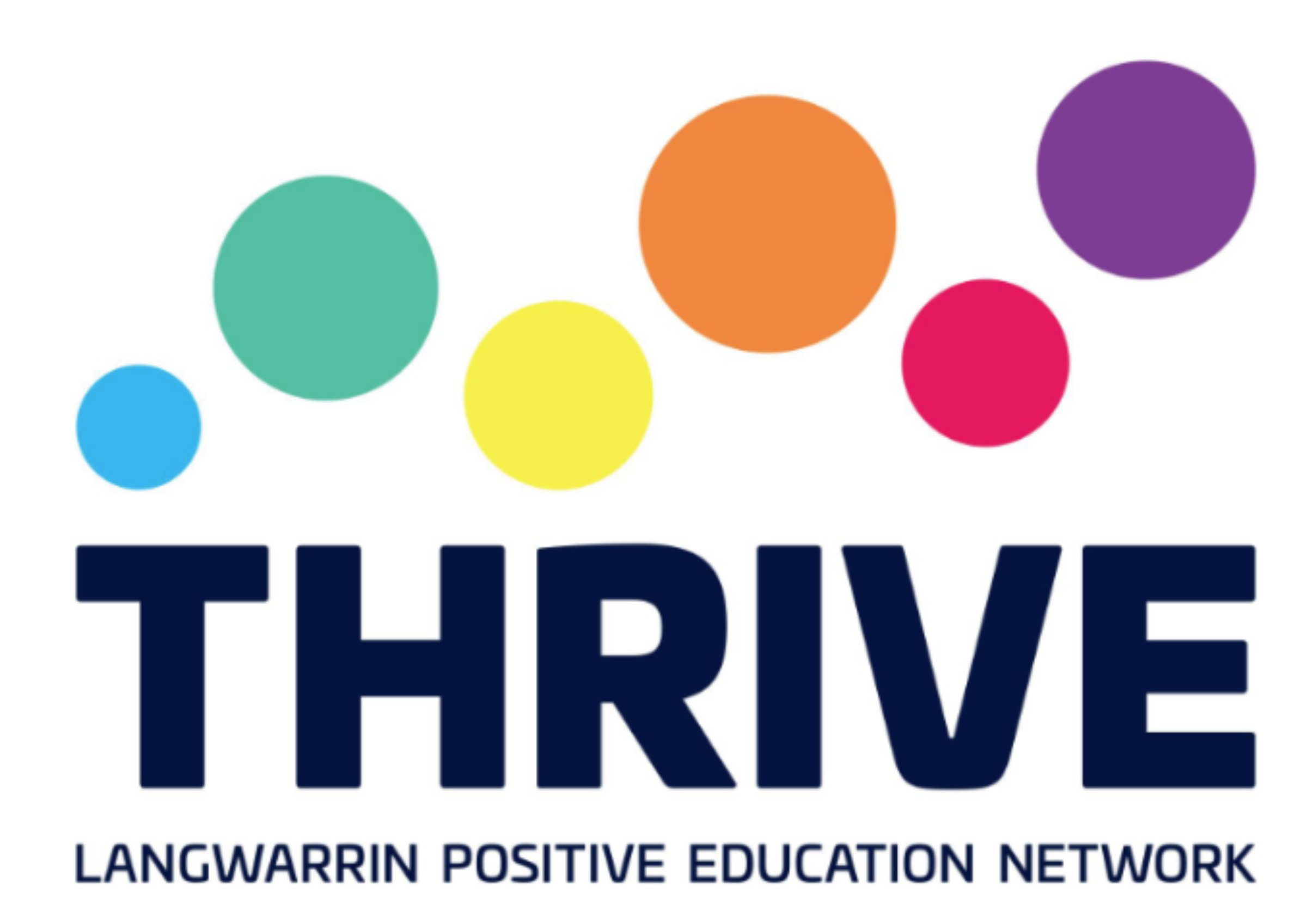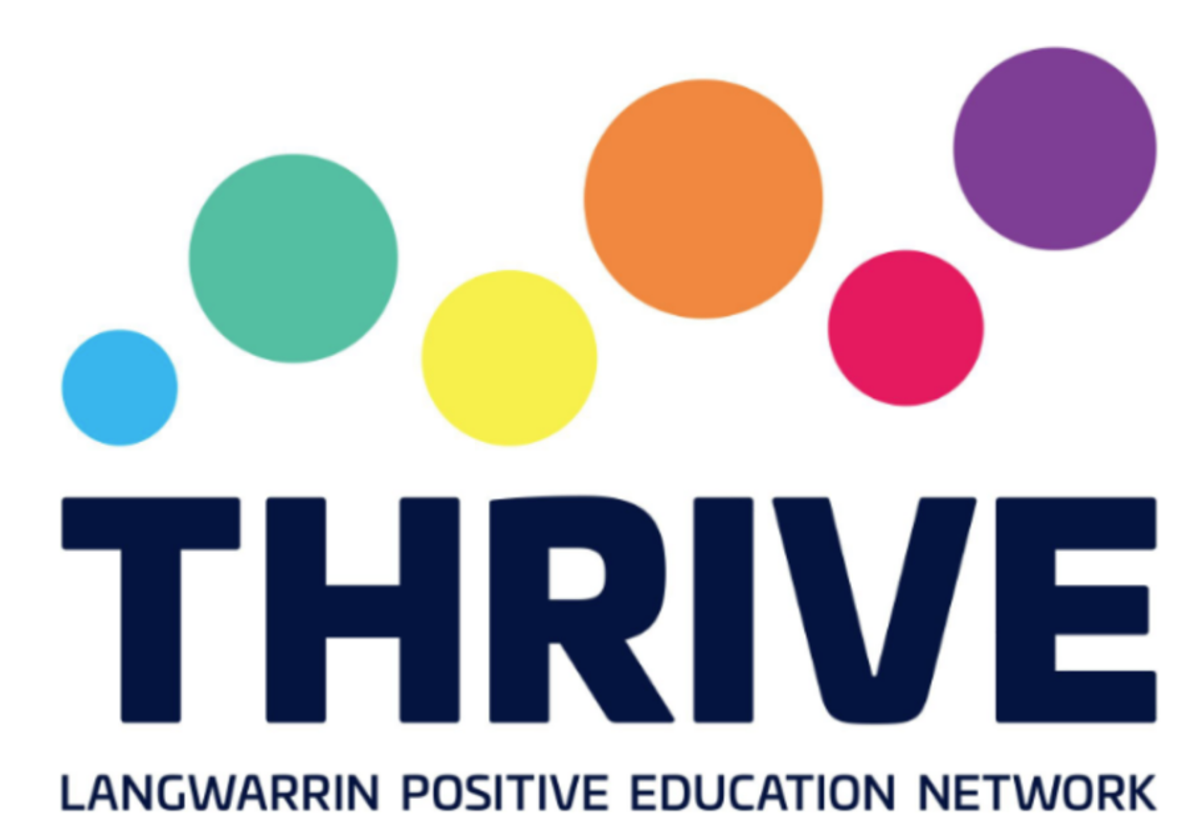THRIVE-Langwarrin Positive Education Network

by Sarah Roney
Term 3 Personal Social Capabilities Curriculum | |
Foundation |
Foundation students are focusing on building their Personal and Social Capabilities through the Resilience, Rights and Respectful Relationships program. Students will explore how to play fairly and kindly with others by learning about the rules of games and what it means to be respectful and inclusive. They will discuss fairness, how to recognise mean or hurtful behaviour, and how such actions make people feel. The children will also learn about the role of clothing in protecting our bodies and understand that some parts of our bodies are private. As part of our body safety focus, students will be introduced to the ‘No, Go, Tell’ strategy to help them speak up and seek help if they ever feel unsafe. Finally, they will learn the difference between safe secrets (like surprises) and unsafe secrets that should be shared with a trusted adult.
|
Year 1 |
Year 1 students are focusing on building their Personal and Social Capabilities through the Resilience, Rights and Respectful Relationships program and the Daniel Morcombe Keeping Kids Safe resources. Students will begin by engaging in cooperative games to learn how to work effectively with others. They will develop their problem-solving skills by exploring different ways to respond to everyday challenges, considering the consequences of their choices and deciding on the best actions. Building on this, students will practise using real-world strategies for seeking help and support when faced with a problem. Finally, they will learn to recognise the body’s warning signs when feeling unsafe or uncomfortable, and practise ways to respond and report these feelings to trusted adults.
|
Year 2 |
Year 2 students are focusing on building their Personal and Social Capabilities through the Resilience, Rights and Respectful Relationships program. The primary focus is to help students understand the importance of respect, safety, and consent. Students will begin by exploring what violence is—including physical, emotional, and damage to property—and how it can affect others. They will learn that the opposite of violence is respect, and practise ways to interact fairly, kindly, and in gender-inclusive ways through role-play and discussions. The concept of consent will be introduced, helping children understand how to ask for and give or refuse permission. Students will also learn about personal boundaries, body privacy, and how to recognise warning signs when something doesn’t feel right. They’ll explore the difference between safe and unsafe secrets, and practise the No, Go, Tell strategy to seek help if they ever feel unsafe or uncomfortable. These lessons are designed to empower students to respect themselves and others, while knowing how to keep their bodies and feelings safe.
|
Year 3 |
Year 3 students are focusing on building their Personal and Social Capabilities through the Resilience, Rights and Respectful Relationships program. Students will be developing their problem-solving and coping skills. Students will begin by participating in fun teamwork games to explore how they solve problems together and reflect on common challenges faced by children their age. They will then be introduced to a simple problem-solving model (Roads and Roundabouts) to help them think through problems, consider different actions, and reflect on possible consequences. In small groups, students will practise applying this model to real-life peer situations. To finish the unit, students will take part in activities that highlight individual similarities and differences and explore healthy ways to cope with challenges, build resilience, and manage stress.
|
Year 4 |
Year 4 students are focusing on building their Personal and Social Capabilities through the Resilience, Rights and Respectful Relationships program. Students will focus on understanding and responding to violence and building respectful relationships. Students will begin by learning about different types of violence—verbal, physical, and emotional—and how these actions can affect others. They will also discuss ways to support friends who may have experienced violence. Building on this, students will explore the concept of gender-based violence, what it means, and how it can impact individuals and communities. The concept of consent will be introduced through relatable scenarios, helping students practise how to ask for, give, refuse, or withdraw consent. Finally, students will be introduced to the ‘No, Go, Tell’ strategy as a practical way to respond to situations that feel unsafe or unfair, particularly in relation to gender-based violence. These lessons aim to build empathy, confidence, and respectful communication.
|
Year 5 |
Year 5 students are focusing on building their Personal and Social Capabilities through the Resilience, Rights and Respectful Relationships program. The focus of the lessons will include gender, diversity, and inclusion. Students will begin by learning key terms such as sex, gender, and diversity, and explore how inclusive language and actions can help create a school environment that is welcoming and respectful of everyone. They will then explore how gender roles and expectations can be passed down through things like clothing choices, hobbies, and sports, and consider how these can influence people’s experiences. Students will also examine real-world data to understand how gender norms can sometimes limit opportunities or lead to unfair outcomes. Finally, they will reflect on how media, social messaging, and peer pressure can shape beliefs and behaviours about gender. These lessons aim to encourage critical thinking, empathy, and respect for diversity in everyday life.
|
Year 6 |
Year 6 students are focusing on building their Personal and Social Capabilities through the Resilience, Rights and Respectful Relationships program. The lessons will focus on respect, consent, and help-seeking in peer relationships. Students will begin by exploring what respectful relationships look like, identifying behaviours and actions that build trust, kindness, and safety. They will then develop a deeper understanding of consent, including discussions around sexual consent and recognising whether it has been asked for, given, or refused in different scenarios. As part of this lesson, students will also be informed about laws relating to sexual assault, harassment, grooming, and child abuse, in an age-appropriate and respectful way. The unit will continue with a focus on becoming an upstander—someone who speaks up or seeks help when witnessing gender-based violence. Students will also practise using the ‘No, Go, Tell’ model to seek help in situations involving unsafe or inappropriate behaviour. These lessons are designed to support students in building respectful relationships, understanding boundaries, and knowing when and how to get help. |

